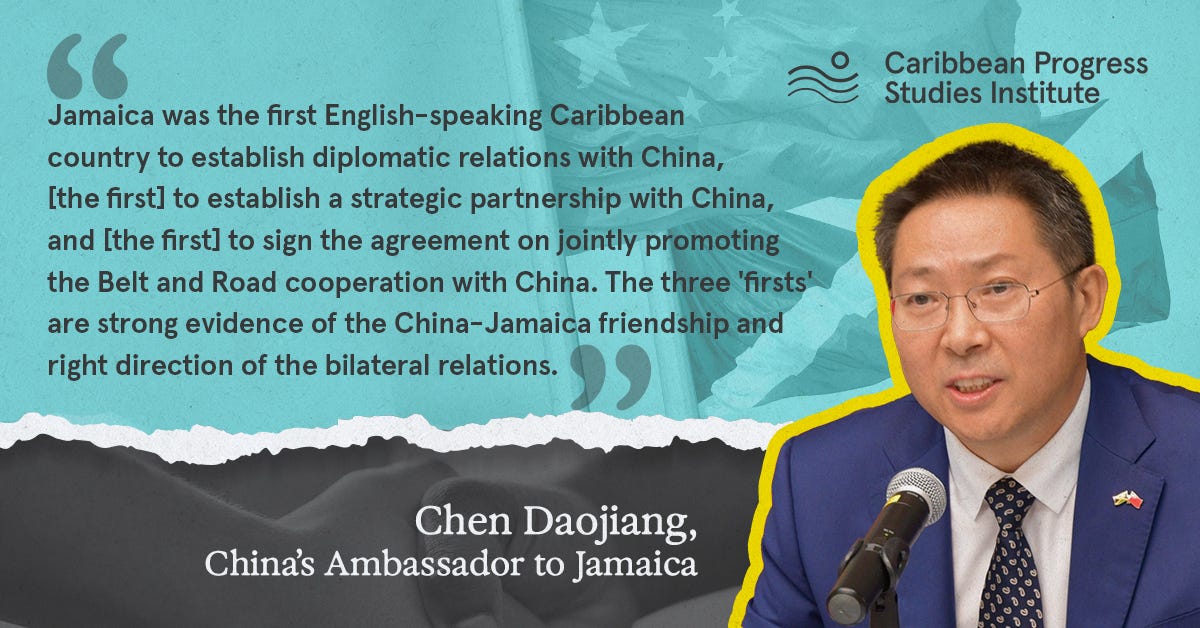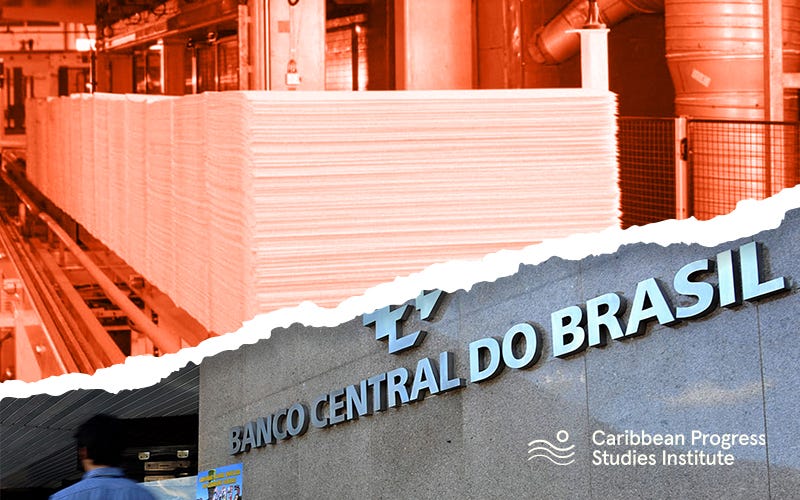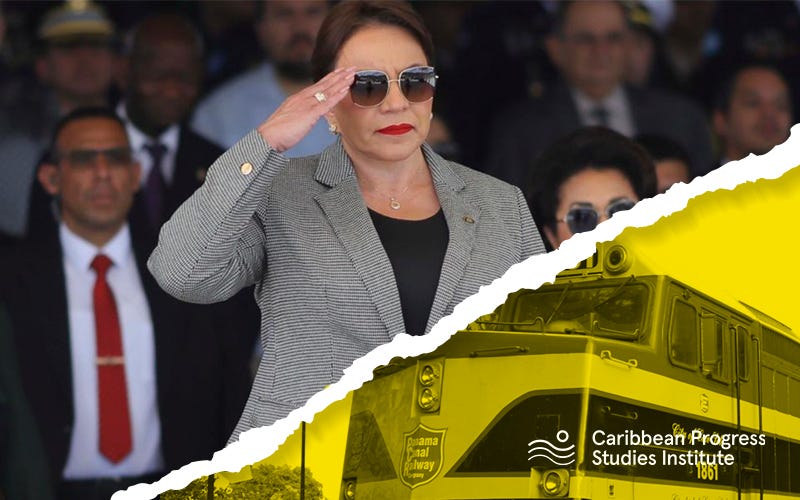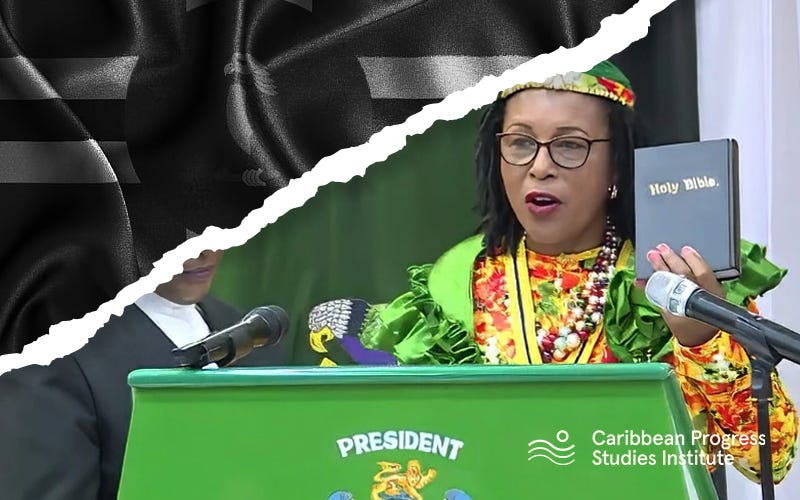Chaufa - The Right Direction
Guatemala's ties to Taiwan, Chinese cyberattack in Guyana, Brazilian Real-RMB transactions, and China's abstention on the UN Haiti resolution
Hi! Welcome to Chaufa, a China-Western Hemisphere Newsletter by CPSI.
Today’s Edition covers October 2 to October 8.
Quote of the day
This Week’s Top 6 Stories:
In an interview to SCMP, Guatemalan president-elect Arévalo affirmed that he plans to maintain diplomatic relations with Taiwan, though he will also seek better trade ties with China.
Some cybersecurity trade outlets report that Chinese hackers are engaged in a cyberespionage campaign against Guyana. The attacks may have started when the government arrested three people laundering money for Chinese companies. (The Record) (Bank Info Security)
Brazil and China completed a financial from RMB to Reales (bypassing the U.S. Dollar) for the first time. The transaction involved a Brazilian pulp firm exporting to Qingdao. (Mercopress) (Xinhua)
According to the Financial Times, the U.S. government has warned Peruvian authorities that China has gained control of crucial parts of Peru’s critical infrastructure, highlighting Chinese investments in the electrical grid and the Port of Chancay.
Chinese FDI in Peru, mainly in the financial and mining sectors, hit $13.6 billion in May. Peruvian exports grew 10.7% year on year, mostly due growing demand for minerals. (La Republica)
China abstained on the UN Security Council’s approval of the Kenyan-led security mission to Haiti. The PRC voted for an expanded arms embargo on Haitian gangs.
Honduras’s president gave a presentation on the proposed $20 billion trans-oceanic corridor, naming it a national priority. The project has been pitched to China, but Castro emphasized that she would welcome engagement with other countries. (Telesur) (BN Americas) (El Informativo)
My Take
Little Hope for a Honduran Rail Canal
The idea of a Honduran trans-oceanic corridor isn’t new, but the dramatic megaproject remains just as unlikely as it was a decade ago.
In 2013, before China and Honduras had any hint of diplomatic relations, China Harbor Engineering signed an MOU with the Honduran government for a $20 billion rail line between the country’s Atlantic and Pacific coasts. The deal never got off the ground, but when China and Honduras exchanged ambassadors this spring, the Honduran government seized the opportunity to pitch the project again to Chinese investors.
Yet no reporting has suggested that Chinese businesses or institutions have been hooked on the megaproject. Even worse for Tegucigalpa, given the steady decline in Chinese investment by its policy banks in regional megaprojects, Beijing seems unlikely to start funneling money into rail-based rival to the Panama Canal anytime soon.
But as recent U.S. concerns about increasing Chinese dominance of critical infrastructure in Peru show, there are frequently strong security and political reasons for infrastructure projects that may not be 100% economically sound. Diversifying pie-in-the-sky infrastructure projects away from China to the U.S. and its partners could also change global perceptions that only China can deliver ambitious and modern infrastructure in the 21st century.
However, Western support for a project as massive as a $20 billion trans-oceanic corridor is still far away. Though the U.S. and its allies are refocusing on connectivity and infrastructure with the Partnership for Global Infrastructure and Investment, financing and support don’t yet rival projects like the Peruvian Port of Chancay or the Coco-Coda Sinclair dam. Unless something dramatically changes on the U.S. or Chinese side, the project will likely remain an idea.
The Roundup
Politics and security
The U.S. Treasury Department sanctioned nearly 30 Chinese individuals and entities for shipping fentanyl precursors through Mexico.
During a speech at the embassy’s reception for the PRC’s 74th anniversary, China’s ambassador to Jamaica identified the GDI, infrastructure, and education exchanges as key areas of cooperation in the bilateral relationship. In a similar speech in Colombia, Ambassador Zhu highlighted trade, infrastructure, and cultural exchanges.1
China and El Salvador are celebrating five years of relations this week, while the vice foreign minister gave an interview to CGTN praising the BRI and its effect on bilateral ties.
Xi congratulated Sylvanie Burton on becoming Dominica’s new president, praising the island for its “unwavering support.” (Dominica News Online)
Investment, finance, and infrastructure
In advance of President Petro’s visit to China, the PRC embassy denied previously reported rumors that President Xi was uninterested in discussing the Colombia’s Bogota metro.
China Harbor is joining several Latin American and European companies in bidding for a major maintenance project of the Western Pan-American highway in Panama. (Panama America)
President Lasso inaugurated a new Chinese-built and financed hospital in the Ecuadorian province of Manabí. (People’s Daily)
Trade and technology
In advance of President Boric’s trip to China, a senior official explained in an interview to Bloomberg that the administration will use the visit to shift the balance of trade away from minerals to more productive sectors of the Chilean economy.
The Wall Street Journal published a piece about how Chinese manufacturing is shifting from coastal provinces to inland provinces instead of Mexico. However, Reuters reported on how hedge funds are increasingly investing in Mexico and Ecuador as alternatives to China.
Nicaragua is purchasing 1,500 buses from China to update its aging fleet. (100% Noticias)
The Venezuelan agriculture minister held a meeting with the Chinese ambassador on agriculture trade and cooperation. (Agrositio)
Taiwan
St. Vincent’s and St. Kitt’s Governors-General traveled to Taiwan for National Day celebrations. At the same time, Belize’s Prime Minister expressed warm wishes and highlighted his country’s ongoing friendship with the ROC.
The Paraguayan Ministry of Public Health and Social Welfare received nearly $1.5 million from the Taiwanese government as part of the fourth disbursement in a project to modernize the country’s health system. (Paraguay MRE)
Taiwan donated CCTV cameras, body cameras, and a vehicle registration identification system to St. Vincent’s police as part of a broader project to enhance security in the Caribbean country. (St. Vincent Times)
Analysis and Opinion
Major General Evan Pettus wrote an article for the U.S. Air Combat Command arguing that “the growing PRC influence in Latin America and the Caribbean poses a significant risk to the geostrategic interests of the United States, the rules-based international order, and the sovereign interests of democratic nations in the region.”
CNBC ran a piece about general China-Latin American relations, citing Margaret Myers, Ruben Gonzalez Vicente, and Roberto Garcia Moritan, arguing that the relationship is investment and trade-focused and acknowledging that cooperation has slid into other areas like security in recent years.
China’s ambassador to Costa Rica, Tang Heng, wrote an op-ed for La Republica calling for the country to take advantage of the BRI and to “further strengthen the coupling of our respective development strategies, [and] explore the potential of substantial cooperation in areas such as the digital economy, green development, e-commerce, [and] health.”
That’s it for now! See you next week.
Make sure you don’t miss the next issue of Chaufa 👇
Following up on last week’s Chaufa, Jamaica’s government sent the foreign minister to speak to the reception, while the reception at the Chinese embassy in Colombia was attended by the Colombian finance minister and head of the House of Representatives.





